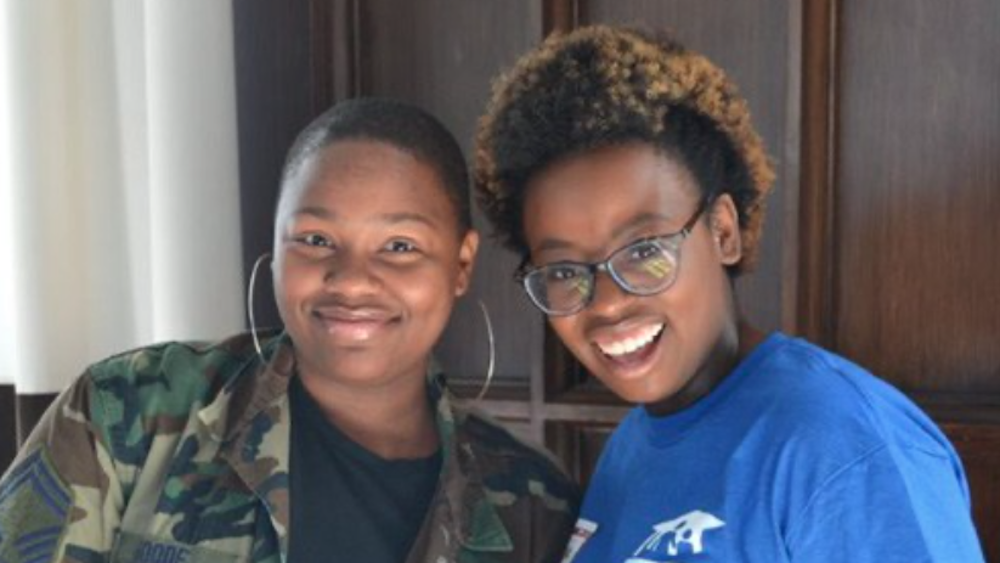If you’re interested in sharing your opinion on any cultural, political or personal topic, create an account here and check out our how-to post to learn more.
____
With Black History Month now over, we've celebrated the beauty and brilliance of the African diaspora, and recognized the visions, achievements and sacrifices of those who have come before us. But we must also acknowledge the American promise of "equality for all" that has yet to be fulfilled. In my home, our nation’s capital, white households have 81 times the net worth of Black households, and amid the COVID-19 pandemic, the racial wealth gap in America continues to widen.
It’s estimated that by 2053, the median wealth of Black Americans could fall to zero. That prospect is especially stunning when considering the myriad of inequalities that already exist for Black people in health care, education and in our legal system — to name a few.
This moment in the fight for racial equality demands significant change, and too often we tend to think of policy and direct service priorities as either/or options — they are not. We can, and must do both to break the generational cycles of racial inequality and injustice. I believe that these efforts, combined, will help close the wealth gap.
Since last summer’s racial justice awakening, sparked by George Floyd’s murder, I’ve heard countless people note they are aspiring to promote change. Change through major legislation, while much needed, is also complicated and slow. For those who want to have a direct impact on Black youth, I would suggest that mentorship is a great place to focus.
Mentorship can boost confidence, provide guidance and allow a young person to dream and experience beyond the limitations of their neighborhood. Data shows that young adults who have a mentor are more likely to enroll in college, volunteer regularly and hold leadership positions. To address the decades of ongoing disinvestment in Black children, our youth need not only more resources, but deep support from a caring community that will protect and promote Black futures.
Having led mentoring programs for the past two decades, I also know well that mentoring alone will not level the playing field for Black youth. Our government leaders have a responsibility and a once-in-a-generation legislative opportunity to address systemic racial inequalities in our health care, education and criminal justice systems to ensure that Black youth have a brighter tomorrow.
Disparities in our healthcare system have long existed and the COVID-19 pandemic has only exacerbated them for Black people. Black youth with COVID-19 have been hospitalized at a rate five times higher than white children and are significantly more likely to die from the coronavirus than white children. On top of the financial strains and emotional burdens caused by the pandemic, Black Americans are being vaccinated at rates significantly lower than white Americans and lower than their share of the general population. It’s imperative that a racial justice lens is incorporated in the distribution, delivery and education around the COVID-19 vaccines through federal directives that ensure that the vaccines reaches Black communities, without being co-opted by white neighbors from wealthy communities.
In our education system, predominantly Black schools remain consistently underfunded. Reports show white schools receive $23 billion more each year than Black schools. As a result, predominantly Black public schools tend to have fewer high-rigor courses, crumbling facilities, outdated learning materials and less-experienced teachers with fewer credentials. We must establish a system where the quality of education is not based upon the wealth within a ZIP code, but where we instead prioritize investment in our most under-resourced group — Black youth.
Tax dollars that could strengthen our schools are instead fueling mass incarceration. State and local spending on prisons and jails has increased at triple the rate of funding for public education in the last three decades. Black Americans represent nearly 40% of people in prisons and jails, despite being only 13% of the U.S. population, and the growth in our incarceration rates is beginning in our schools. Black students are more likely to be suspended and expelled than white students and are more likely to have police in their schools than guidance counselors, nurses or psychologists. We must shift our incarceral approach that criminalizes Black youth to one that empowers them and enriches their communities to help ensure that opportunities for economic mobility are abundant and easily accessible.
Federal investments and individual actions of support will not eliminate a wealth gap that has been building for 400 years, but they will begin to reverse the growing inequality we see today. And to realize the promise of brighter futures for our young people, we cannot afford to wait. The time is now for bold action that allows the talent and creativity of our Black youth to shine and that moves us toward a society that is truly equal for all.
____
Khari Brown is CEO of Capital Partners for Education, a non-profit providing mentoring for career and college success to low-income students.
